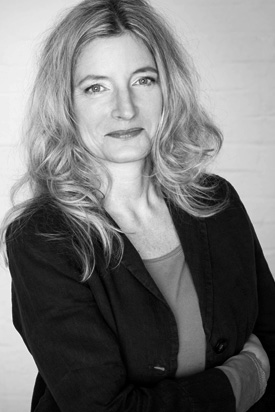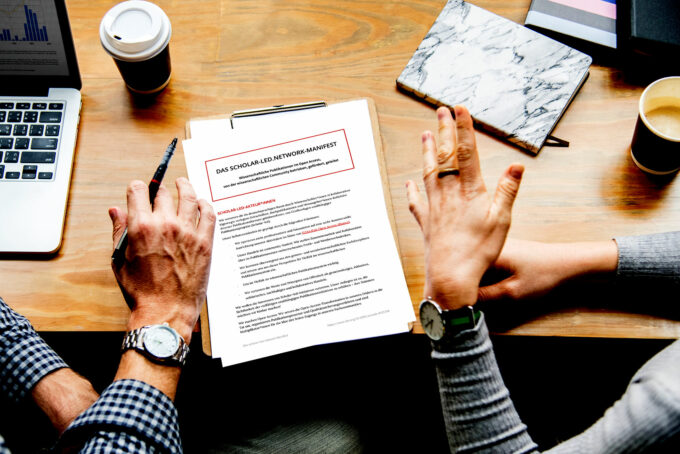
FAIR Data: Many Paths Lead to the EOSC
Many initiatives are dedicated to promoting open data. While RDA has been established for some time now, GO FAIR is now firmly dedicated to FAIR research data management in the context of the European Open Science Cloud. Prof Dr Heike Neuroth, the link between both initiatives, explains in an interview how all initiatives pull together and discusses the assessment of the research data landscape.
we were talking with Prof Dr Heike Neuroth
 Prof Dr Heike Neuroth is Deputy Chairwoman of RDA Germany and a member of the GO FAIR steering committee. In the interview, she shares her assessment of promoting FAIR Data and Open Science.
Prof Dr Heike Neuroth is Deputy Chairwoman of RDA Germany and a member of the GO FAIR steering committee. In the interview, she shares her assessment of promoting FAIR Data and Open Science.
Ms. Neuroth, on the basis of your many years of experience in the scientific field, how, in your opinion, can good scientific practices be promoted with regard to research data management?
Germany seems to be already quite well set up to me. There are currently a number of funding programmes both at the German Research Foundation (DFG) and at the Federal Ministry of Education and Research (BMBF). In addition, there is the newly released programme support for the National Research Data Infrastructure. All in all, there has been much activity in this regard in Germany, analogous to European and international countries, for over 10 years. The area that certainly lags far behind is the field of teaching, further education, training and thus a systematic introduction of good scientific practices in dealing with data. Nobody benefits when numerous scientists employed on a temporary basis acquire expertise in the field of research data management and FAIR as part of a third-party funded project only to leave academia again at a later date. That is not sustainable. We need dedicated study programmes in the field of data management in addition to the courses in the fields of data science, data analysis, data engineering etc. that are currently being established all over Germany. Only then can the scientific community be supported on a day-to-day basis so that the benefits are visible, for example when sharing or reusing research data. And then, with the help of FAIR, we really get visibly closer to the European Open Science Cloud vision.
There are currently a number of ongoing initiatives and projects dealing with the topic of research data management. As Deputy Chairwoman of RDA Germany and a member of the GO FAIR steering committee, how do you think RDA and the GO FAIR initiative complement each other in Germany?
The German “node” of the international “Research Data Alliance – Research Data Sharing without barriers” brings together interdisciplinary and cross-disciplinary experts from a wide variety of research data fields. This initiative has been established for some years now. The European Commission has also been funding EU projects for years and, as of the start of 2018, Germany has officially launched a German version that is similar to initiatives in France, Austria or Finland. Thus, we have an outstanding example of the so-called “bottom-up” approach: entire specialist disciplines and communities were “engaged” conduct a broad and in-depth exploration of various aspects of research data and management. The GO FAIR initiative is relatively new and aims to implement the FAIR principles, so to bring them to life and make them actionable. On the one hand, we therefore have a dynamic and active global community and, on the other hand, concrete FAIR principles. It will be very exciting to see how quickly and actively the German RDA community picks up FAIR, what their experiences are and what recommendations are made for future implementation as a result. This will take place, for example, in a targeted manner in the GO FAIR implementation networks.
The establishment of a National Research Data Infrastructure (NFDI) has gained momentum through the announcement of the federal-state agreement. What role do you think GO FAIR can play in establishing the NFDI?
With the establishment of the NFDI we have a great opportunity to implement the FAIR principles concretely in Germany at the relevant speed and adapted to the relevant academic culture for each academic community and each (potential) NFDI consortium. Special support measures from GO FAIR are certainly helpful and welcome. In addition, it would be perfect if GO FAIR could coordinate the establishment of the FAIR principles in Germany, especially in the context of the NFDI, in order to derive so-called “Lessons Learned”, can then be fed back into European discussions, EOSC developments and internationally. Even if each FAIR criterion is very specific, there may be different approaches to implementation from discipline to discipline that are sensible from the perspective of the academic culture in question.
In addition, we certainly need a “nonpartisan” or objective perspective or accompanying research that addresses questions like: How much fair is fair? How much does it cost us as a society to provide everything (services, data, metadata) fairly and what do we lose in this process? How can a process to make things fairer be supported across academic cultures, are there generic services and (training) measures that provide fair support? Of course, this list of questions is not exhaustive. But GO FAIR could initiate or monitor the communication and discussion process here. Concrete recommendations for subsequent funding priorities or accompanying research would help to better understand the significance and cultural change initiated by FAIR and increase acceptance beyond eligibility criteria. It would also be desirable to include relevant stakeholders from outside the scientific community, from industry, civil society etc. If citizens could use their local town’s data portals correctly, for example, they would be able to gain an understanding of specific regional issues with the help of the ideal data provided.
At the same time, cross-border efforts are also being made both by science, for example at EU level with the EOSC, and by business, for example Google Data Search. What challenges do you foresee for science in terms of pressing on with its offers?
I don’t actually think that this is really about “pressing on”. Of course, we have to be careful that FAIR does allow scientists to reuse findings and results, for example to be able to reuse valuable research data at no cost in order to generate better business offers on a one-sided basis. I think it would be more useful in general if cooperation happened on equal terms. Google Data Search will not replace NFDI and will not be its competitor. And it’s true that scientists are primarily interested in publications (articles and data) because these things are THE currency in our community. And businesspeople naturally have an interest in maximising profits by providing a good service. However, there are many topics that are researched and developed in cooperation in this area of conflict and that can therefore be of benefit to both sides. Digital datafication is a big challenge for us all. One of the biggest future challenges might be, for example, the quality and trustworthiness of findings that based on large volumes of data and (automatic) processing of such data.
GO FAIR Initiative: Germany, France and the Netherlands have joined the initiative to promote the implementation of the European Open Science Cloud (EOSC) and “FAIR use of research data”. They consider the GO FAIR initiative to be an ideal trailblazer and have set up an International Coordination and Support Office. The Office’s mission is to build a global network of scientific communities and research infrastructures and to advance the acceptance and application of FAIR principles.
The FAIR Principles are the principles that maximise the sustainable reusability of data. FAIR stands for Findable, Accessible, Interoperable and Reusable. The use of these principles ensures cross-disciplinary and cross-border access to data and utilisation of data.
View Comments

Open Science: Interesting Conferences & Events for 2019
Which events could be worth a visit in 2019 in the context of open science? We offer...



